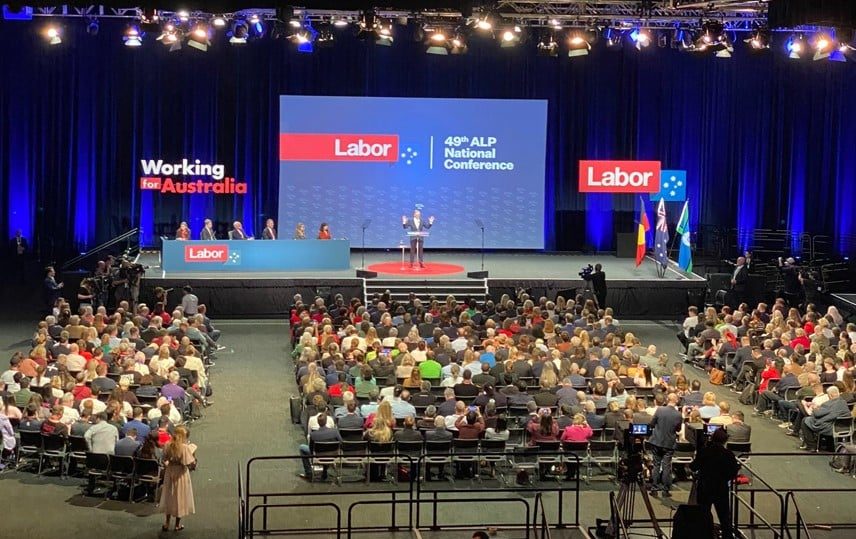MEDIA RELEASES
AIJAC acknowledges ALP Conference decision to continue status quo on Israel and Palestinians
August 18, 2023 | AIJAC staff

The Australia/Israel & Jewish Affairs Council (AIJAC) today acknowledged the decision of the ALP National Conference in Brisbane to continue with its existing policy stance on Israel and the Palestinians – especially regarding recognition of the so-called “state of Palestine”.
AIJAC Executive Director Dr. Colin Rubenstein said, “The ALP National Conference decision to make no changes to the existing party platform on Israeli-Palestinian issues, despite calls from elements in the party to demand immediate recognition of the currently non-existent ‘state of Palestine’, was positive, given the circumstances.”
He added, “Given the Government’s recent misguided and misconceived policy changes on Australia’s stance toward the West Bank and Jerusalem, which will only encourage continued Palestinian intransigence and refusal to negotiate with Israel, and make a two-state outcome more difficult to achieve, any additional changes to the ALP’s stance on ‘Palestine’ would have been especially unwelcome and counter-productive. Constructively, the ALP leadership and party as a whole were able to resist the demands of the extremists and ideologues pushing to recognise ‘Palestine’ as a state without the Palestinian leadership agreeing to a negotiated two-state peace agreement with Israel. Such an unprecedented decision, in contradiction to the stance of almost all our democratic allies, would severely dent Australia’s long-standing bipartisan policy of seeking to encourage a negotiated two-state Israeli-Palestinian peace.
“As Foreign Minister Penny Wong has repeatedly stressed, and as the legally binding Oslo Accords stipulate, final status issues, including borders, need to be settled by negotiation between the two parties. We hope and expect that the ALP Government will continue to avoid further policy changes which contradict or disrupt this vital stance, which is an essential part of its declared policy of maintaining Australia’s tradition of seeking to encourage a negotiated two-state peace,” Dr. Rubenstein concluded.
Tags: ALP, Australia, Israel, Palestinians





